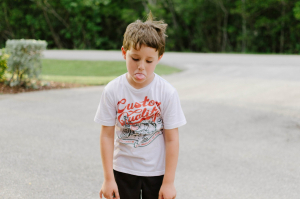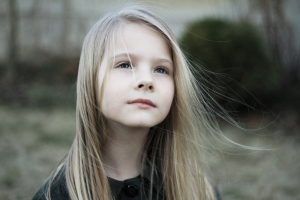We all know how resilient children are. Kids are often the ones who pull us back to what is good, beautiful, true, and holy about a moment or a situation. They’re often who adults credit as keeping up morale in the family or providing hope. Children possess an incredible capacity to view the world through fresh eyes. Their vibrancy, resilience, and joy are gifts from God. If you’re seeking support in nurturing these qualities in your family, Agoura Christian Counseling can help guide you through challenges and help foster a positive environment.
 As adults, God has given us these precious children to steward. We are the ones who have been given the privilege of teaching them about God, themselves, and the world. Adults get to watch children as they unfold into the people God wants for them to be. We steward the development of children’s physical health and children’s mental health.
As adults, God has given us these precious children to steward. We are the ones who have been given the privilege of teaching them about God, themselves, and the world. Adults get to watch children as they unfold into the people God wants for them to be. We steward the development of children’s physical health and children’s mental health.
In the last several years, there’s been a positive shift towards the mental and emotional development of children. Kids were once viewed as less-than adults. While this mindset persists in some places, it’s changing. Adults are realizing, like Charlotte Mason said, “children are born persons.”
They’re born with the innate capacity to experience emotions. Children have opinions, thoughts, insight, and feelings just as adults have. We’re all learning to develop these- regardless of our age. Kids need us to help steward and teach them as they develop and grow.
Today we’re going to talk about supporting children’s mental health by building emotional awareness, vocabulary, and emotional regulation skills for children. Hopefully, these tips and information will help adults better steward and educate the kids in their lives.
God gave us a wide range of emotions and these can be overwhelming and confusing for kids (and adults!) to navigate. Providing them with some basic skills and knowledge will help set them up with success for what will be a lifelong journey of emotional awareness, processing, and discovery.
Helping Kids Identify Emotions
Kids feel big feelings. We’ve likely all watched a toddler throw a fit, a young child cry out of sheer joy, and a teen experience anger that seemed to come from nowhere. Adults can usually recall vividly intense emotions from childhood. This is all normal. Kids are more in-tune with their emotions. At the same time, they have fewer skills to identify and process these emotions.
 It is up to us as adults to help kids learn to identify and name their feelings. The most common way to do this with very young children is to give a name to the child’s feelings. Little children wear their emotions on their sleeves.
It is up to us as adults to help kids learn to identify and name their feelings. The most common way to do this with very young children is to give a name to the child’s feelings. Little children wear their emotions on their sleeves.
An adult can say something like “You feel sad because your toy broke.” or “You feel angry because I won’t let you have a cookie.” At this age, there’s not a lot of nuance or the ability to hide feelings yet. When adults help to name the emotions, children begin to develop an emotional vocabulary. This also helps them learn what they feel as well as why they feel it.
When children get older, we might say, “I wonder if (or imagine) you’re feeling _____ over ______” We can then pose a couple of emotions for the circumstances and situation and let them see what they resonate with.
Or we can try saying “Your body language tells me you might be feeling _________, does this feel true to you?” This may even need to continue into the teen years on occasion as the teen brain sometimes can’t regulate and process emotions as well as the world expects them to.
Charts displaying different emotions, either cartoon drawings or photos, can also be helpful tools. Some families, schools, and churches choose to keep these readily available so the child can point to the emotion(s) that they are experiencing.
Adults who model emotional awareness have been shown to raise more emotionally aware kids. Expressing our feelings around children, as appropriate, is so beneficial. We can express our feelings about the current moment, share how we felt as a child of a similar age, or pose how we might feel in a certain situation.
 We need to be mindful to communicate our feelings and hear children’s feelings gently and peacefully. Refraining from judgment is important here. A simple matter of fact statement such as “I understand you’re feeling _____” is enough. Adults far too often dismiss a child’s feelings or tell them they should feel a different way. This is not appropriate or necessary.
We need to be mindful to communicate our feelings and hear children’s feelings gently and peacefully. Refraining from judgment is important here. A simple matter of fact statement such as “I understand you’re feeling _____” is enough. Adults far too often dismiss a child’s feelings or tell them they should feel a different way. This is not appropriate or necessary.
Giving children a strong emotional vocabulary is so important. Kids need to be able to give words to their emotions. When they’re tiny we can start with the most basic emotions: happy, sad, angry, scared. As they grow, we can begin to give more depth and nuance to these words- joyful, grief, anxious, furious, frustrated. There are over 400 emotion-related words in the English language, if we can equip our children with at least half of these, they’ll be in great shape!
Emotion Processing and Regulation Skills
Processing and regulating emotions go through the same stages for every emotion. Sometimes we do this consciously and other times it is entirely unconscious. We may even go through all of the stages in one fell swoop at the same moment – the human brain is amazing! These are the steps:
- The first step in processing an emotion is to sit with it to figure out what exactly one feels.
- Next, comes naming the emotion.
- Then, the time comes to share the emotion with someone else, if desired. This step should never be forced. If a child doesn’t want to share their feelings, please don’t force them to.
- Last, we begin the process of regulating the emotion.
Remember, these may all happen at once. For some emotions we may begin to regulate them at exactly the moment we feel them, such as screaming when frightened or smiling with joy. These are automatic responses God gave our bodies for regulating and processing emotions. The final step is more to do with processing and regulating the emotion long-term. It has to do with developing coping skills for the next time we feel this way. This also involves counseling, journaling, meditation, group therapy, and other ways to process and learn to regulate emotions.
Christian Counseling for Children’s Mental Health
God never intended for us to journey alone. Modern life has people more isolated and alone than God ever intended for us to be. The Bible tells us that God gives different gifts to different people to help build up the body and support God’s kingdom.
 Christian counselors can travel the journey with us, and the children in our lives. God has given counselors skills, insight, and access to proper training. These are folks who have chosen to use the gifts and talent God’s given them to help steward and teach God’s people. This includes children!
Christian counselors can travel the journey with us, and the children in our lives. God has given counselors skills, insight, and access to proper training. These are folks who have chosen to use the gifts and talent God’s given them to help steward and teach God’s people. This includes children!
Kids of all ages can benefit from time with a counselor. So can the parents and adults in their lives. Some children may benefit from a handful of sessions to gain skills or learn something new. Other children may benefit from many years, or lifelong, time with a counselor.
Each child is different. Every child has gone through different experiences and processes the world differently. One size does not fit all with counseling. What does reign true is that virtually all children can benefit from meeting with a counselor at some point in their life.
A Christian counselor can be especially helpful when working on emotional skills and language with children. They’ve been specifically trained in children’s mental health and know how to speak to kids about feelings. A counselor will be able to uniquely help children find words for their feelings, sit with them, process them, and deal with them in healthy ways. This is something most parents, teachers, and other adults are ill-equipped to do, despite their best intentions.
Some children are resistant to parental help or discussing their emotions with their parents. These children especially benefit from working with a counselor. They may be hesitant at first and may even become angry, hostile, or bitter towards a parent for requiring the work to be done. Yet parents, children, and counselors will see the benefits and the fruits of the labor later on.
There’s no right or wrong age, stage, or life experience to pursue counseling for kids. If a counselor feels a child doesn’t need support, they’ll communicate it with the parents. Life is becoming increasingly stressful and difficult for kids these days. Parents can use the extra support and reinforcement, a counselor at Agoura Christian Counseling can support children’s mental health and emotional development.
“Down and Out”, Courtesy of Hunter Johnson, Unsplash.com, CC0 License; “Girl in Pink”, Courtesy of Rajesh Rajput, Unsplash.com, CC0 License; “Little Cutie”, Courtesy of Yousef Espanioly, Unsplash.com, CC0 License; “Pondering”, Courtesy of Ratiu Bia, Unsplash.com, CC0 License
-
Kate Motaung: Curator
Kate Motaung is the Senior Writer, Editor, and Content Manager for a multi-state company. She is the author of several books including Letters to Grief, 101 Prayers for Comfort in Difficult Times, and A Place to Land: A Story of Longing and Belonging...
DISCLAIMER: THIS ARTICLE DOES NOT PROVIDE MEDICAL ADVICE
Articles are intended for informational purposes only and do not constitute medical advice; the content is not intended to be a substitute for professional medical advice, diagnosis, or treatment. All opinions expressed by authors and quoted sources are their own and do not necessarily reflect the opinions of the editors, publishers or editorial boards of Stone Oak Christian Counseling. This website does not recommend or endorse any specific tests, physicians, products, procedures, opinions, or other information that may be mentioned on the Site. Reliance on any information provided by this website is solely at your own risk.





